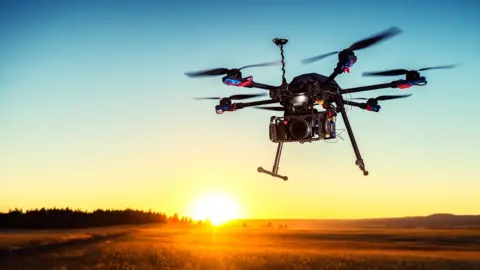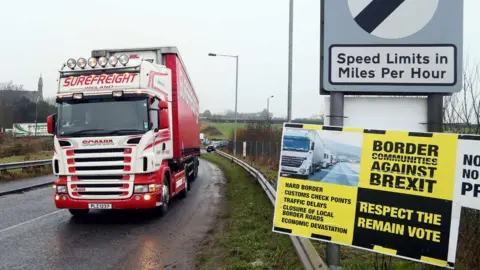Brexit: Airships could patrol Irish border, says think tank
 Getty Images
Getty ImagesA think tank has suggested that drones or airships could be used to monitor the Irish border after Brexit.
The idea is raised in a paper from the Legatum Institute, examining how the UK and EU could resolve the border issue.
It states that "persistent surveillance of the border region" could be achieved through patrols by unmanned aerial vehicles or deployment of aerostats.
But it concedes "that these solutions are subject to a number of limitations, not least weather and cost".
The Legatum Institute is considered to be influential with some government ministers.
Its paper largely echoes the view of Brexit Secretary David Davis that a so-called hard Irish border can be avoided through a combination of technology and a comprehensive trade deal.
'Tightened or relaxed'
It also suggests that the Special EU Programmes Body, which manages cross-border EU funding, should be repurposed after Brexit to deal with cross-border trade.
 AFP
AFPIt says it could "be used to monitor the border, conducting risk assessments and advising when border security should be tightened or relaxed."
It is also supportive of the idea that Northern Ireland and the Irish border counties should become a "special economic zone" (SEZ).
An SEZ is usually an area of a country where business, trade or taxation laws differ from rest of the country, with the aim of boosting growth.
The leader of the Republic of Ireland's main opposition party has made a similar suggestion.
The UK government made some suggestions about customs and the border in a position paper published last month.
However, it appears to have been rejected by the EU, with its chief negotiator Michel Barnier saying: "Creativity and flexibility can't be at the expense of the integrity of the single market and customs union."
